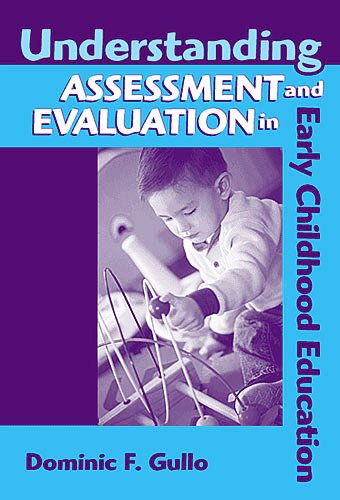

Most ebook files are in PDF format, so you can easily read them using various software such as Foxit Reader or directly on the Google Chrome browser.
Some ebook files are released by publishers in other formats such as .awz, .mobi, .epub, .fb2, etc. You may need to install specific software to read these formats on mobile/PC, such as Calibre.
Please read the tutorial at this link: https://ebookbell.com/faq
We offer FREE conversion to the popular formats you request; however, this may take some time. Therefore, right after payment, please email us, and we will try to provide the service as quickly as possible.
For some exceptional file formats or broken links (if any), please refrain from opening any disputes. Instead, email us first, and we will try to assist within a maximum of 6 hours.
EbookBell Team

4.7
86 reviews 
ISBN 10: 0807745324
ISBN 13: 9780807745328
Author: Dominic F. Gullo
This bestselling book is still the best choice for helping early childhood teachers understand the process of assessment and evaluation to benefit young children. Completely revised to address the issues that have been raised by new testing, accountability, and standards policies, the Second Edition features completely new chapters on assessing Children from culturally and linguistically diverse backgrounds and Children with special needs plus a glossary of terms and an annotated listing of assessment instruments.
1. Preface
2. Acknowledgments
PART I: INTRODUCING ASSESSMENT AND EVALUATION IN EARLY CHILDHOOD EDUCATION
3. Assessment and Evaluation in the Early Childhood Years
4. Putting Early Childhood Assessment and Evaluation in Perspective
5. Evaluation from a Developmental Perspective
PART II: THE ROLE OF FORMAL ASSESSMENT AND EVALUATION IN EARLY CHILDHOOD EDUCATION
6. Formal Assessment and Evaluation Instruments
7. Characteristics and Uses of Standardized Test Results
8. Advantages and Disadvantages of Standardized Testing
PART III: THE ROLE OF INFORMAL ASSESSMENT AND EVALUATION IN EARLY CHILDHOOD EDUCATION
9. Informal Assessment and Evaluation Procedures
10. Assessment Using Performance-Based Strategies
11. Integrating Alternative Assessment Procedures into the Early Childhood Curriculum
PART IV: ASSESSMENT AND EVALUATION WITH SPECIAL POPULATIONS OF CHILDREN
12. Understanding Assessment and Evaluation for Children with Special Needs
13. Children with Culturally and Linguistically Different Backgrounds: Assessment and Evaluation Issues
14. Epilogue
15. Appendix: Selected Assessment Instruments in Early Childhood Education
16. Glossary of Assessment and Evaluation Terms
17. References
18. Index
19. About the Author
understanding assessment and evaluation in early childhood education
assessing and evaluating early childhood education systems
assessment and evaluation in early childhood education
measurement and evaluation in early childhood education
Tags: Dominic F Gullo, Understanding, Assessment, Evaluation, Early Childhood, Education